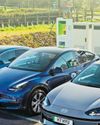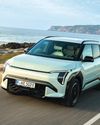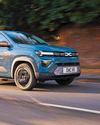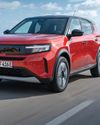
AIthough it seems like everyone is setting their sights on battery-electric vehicles BEVs( to enable us to reach the point where all cars are emissions-free, they are by no means the only solution, and not necessarily the most effective. Hydrogen is a different source of clean energy that could help countries realise their green ambitions quicker and more affordably.
Given that hydrogen is the most abundant chemical element in the universe being found in water, for example( and can hold energy in a similar way to petrol and diesel, its potential as a fuel for vehicles is almost limitless in theory.
It can be fed directly into suitable internal combustion engines, or it can be combined with oxygen in an on-board fuel cell to produce electricity, with the only byproducts being water and heat. And although it has a lower energy density than petrol and diesel when it’s burnt directly, the best hydrogen fuel cell electric vehicles FCEVs( can convert up to 80% of the energy they create into propulsion, versus around 40% for petrol and diesel.
So, why isn’t hydrogen fuel used much more widely already? Well, hydrogen has to be extracted from other things such as water or natural gas( via electrolysis, and this process is not only expensive and time consuming but also requires a lot of energy in itself. In the past, this has mostly come from gasfired power stations, but the necessary energy can now be generated sustainably at solar, wind or nuclear-powered sites. Safety is also an issue; the compressed hydrogen is stored at very high pressures, so FCEVs’ fuel tanks have to be immensely strong and able to withstand crashes.
This story is from the September 2023 edition of What Car? UK.
Start your 7-day Magzter GOLD free trial to access thousands of curated premium stories, and 9,000+ magazines and newspapers.
Already a subscriber ? Sign In
This story is from the September 2023 edition of What Car? UK.
Start your 7-day Magzter GOLD free trial to access thousands of curated premium stories, and 9,000+ magazines and newspapers.
Already a subscriber? Sign In

Cupra Formentor
This sharp-looking plug-in hybrid family SUV has plenty of punch and a good electric range; can it be fun as well as frugal? We're finding out

OUR MANIFESTO FOR ACHIEVING EV GOALS
If the Government is serious about phasing out new petrol and diesel cars by 2030, this is what it should do, says Claire Evans

Bucking the trend
Do you think electric cars are all too expensive? Well, think again, because the number of affordable options is growing steadily. We take three on a road trip to find out which one offers the best value

Kia EV3
Smallest member yet of Kia's EV electric car family spells big trouble for plenty of rivals On sale January Price from £32,995

Dacia Spring
The UK's most affordable electric car arrives on our shores - but is it the bargain it appears to be? On sale Now Price from £14,995

Porsche Macan Electric
Entry-level Macan has the longest official range of the line-up. Could it be the one to have? On sale Now Price from £68,555

Vauxhall Frontera
A familiar name returns to replace the Crossland small SUV, and you can have it in petrol or electric form On sale Early 2025 Price from £23,495

BMW 330e
Plug-in hybrid exec gets a bigger battery for a boost in official electric range – and lower company car tax On sale Now Price from £46,985

BYD Sealion 7
Chinese brand BYD's line-up continues to expand with this new, Tesla-rivalling electric family SUV On sale Late 2024 Price from £45,000 (est)

Alpine A290
Sportier version of the Renault 5 electric car aims to deliver hot hatch thrills for a reasonable price On sale March Price from £33,500